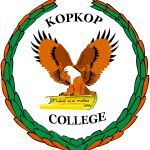Assessment and Reporting
The National Policy for Assessment and Reporting defines Assessment as the ongoing process of identifying, gathering and interpreting information about progress, from students’ demonstration of the intended learning outcomes.
The National Policy for Assessment and Reporting defines Reporting as communicating to students, parents/guardians, teachers and others, the knowledge gained from assessing students’ learning.
Assessment and reporting procedures should provide systematic and continuous ways of collecting information about students’ learning. All assessment from early childhood to grade 6 is school based and internal. These are used for reporting purposes and in all cases must be used for remedial purposes. The Grade Six Kopkop College Exams is intended to serve as a benchmark for asserting if the standard of learning acquired is as prescribed.
Assessment and reporting should be based on a balanced approach. This can be achieved through a variety of ways of gathering evidence about students’ learning, using formal and informal assessment such as:
- observation of students’ performance (practical assessment), processes and products;
- concept maps;
- self and peer assessment;
- portfolios; and
- written tests and
Assessment and reporting procedures must be manageable and supported by collaborative approaches involving students, parents and guardians, when and where appropriate, members of the community. Assessment and reporting must be fair and equitable, catering for differences in gender, culture, language, religion, socio-economic status, geographic location and other special needs. Assessment and reporting must also be reliable and valid. These are most likely to be achieved when evidence is collected using a range of suitable strategies that are fair and equitable. The criteria used to assess student achievements should be made known to the students.
Students, parents and guardians are entitled to receive feedback about students’ progress towards achieving the intended outcomes. Information given to students must be clear, accurate and fair. Students will improve their standards of achievement by knowing what they need to concentrate on in the future. By monitoring the evidence gathered from a range of assessments, teachers will improve their teaching strategies and help students raise their standards of achievement. Records of student achievements must be comprehensive so that accurate reports can be made.
Evaluation involves making value judgments about the assessment information. The information received from assessment needs to be considered and decisions made about its significance. Once evaluated the assessment information should be reported to parents, guardians, teachers, and other stakeholders.
Formal reporting to parents and guardians will vary depending on the level of schooling. Schools should present reports in ways that are suitable for their communities to read and understand.
Students, parents, guardians and members of a community, and various stakeholders have responsibilities to ensure that assessment and reporting is undertaken appropriately, and in ways that meet the needs of students, schools, communities, and the nation.
